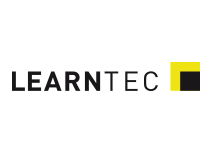'AI Should Act as Interactive Support'
Practical knowledge
Karlsruhe/Berlin, April 2025 - TeleTax GmbH has been the online training provider for German tax consultant associations since 2001. Sonja Bruns is its Managing Director. TeleTax is proud to offer training courses on the most important topics, up-to-date and in certified TOP quality. AI assistance is playing an increasingly important role in this context. Sonja Bruns will share her experiences on Tuesday, May 6 at 10:45 a.m. as part of the LEARNTEC Congress.

What is the role of AI assistance in your specific target or professional group?
Sonja Bruns: For many in our target group, AI is still a relatively new concept. But we are noticing that everyday working life is changing - AI assistants are being increasingly tested, and some are already being used, especially in areas such as digitalization and automation. This applies, for example, to the processing of information or the automatic mapping of data.
In the area of taxation in particular, AI offers exciting opportunities for further training: it is becoming more efficient, more customized and more practice oriented. Tax experts can use intelligent tools to optimize their training and adapt more quickly to new legal requirements.
The use of AI in training is a significant step forward. Until now, online training courses have been very flexible, but often not specifically tailored to the individual requirements of participants. AI can do much more in this regard: it analyzes learning behaviour, makes targeted recommendations and adapts the content to the time frame. Automated performance reviews and adaptive learning systems are also used to communicate complex knowledge even better.
The bottom line is that training not only becomes more effective, but also more attractive and market oriented.
Which requirements should AI assistance meet?
Sonja Bruns: To be effective, an AI assistant must cover a wide range of areas: intuitive integration of the AI assistant into the learning process is essential so that learners can interact with it easily. The AI should act as an interactive support - be it by answering questions immediately, providing suitable examples or through quizzes and exercises that promote learning progress.
Ideally, the AI assistant should create personalized templates that adapt to both the learner's prior knowledge and individual preferences. The level of difficulty can therefore be flexible. In addition, the AI's recommendations should not only be tailored to the level of performance but also provide comprehensible support for the personal learning process. The objective is to make learning more efficient and motivating - for example through playful elements and individual feedback.
However, it is crucial that learners always have the option of ignoring the AI's suggestions and making their own decisions. This contributes to the transparency of the AI and strengthens trust in its recommendations. Accessibility and language support are also essential to make access as simple and intuitive as possible for everyone.
In addition, a comparative evaluation of all participants should be provided to ensure scalability. Finally, the trustworthiness of the AI plays a central role - especially when dealing with personal learning data.
Is personalized learning achievable in your industry without the use of AI?
Sonja Bruns: Of course, individualized learning is also possible without the use of AI - after all, we were working exclusively without AI not long ago. However, traditional learning methods involve several challenges: methods such as the use of personal tutors, self-designed teaching materials or project-based learning processes, as well as teacher-based assessments, are often time-consuming and cost-intensive.
Furthermore, without AI, it is not an option to adapt the learning process to the individual needs of learners in real time. This can limit the effectiveness and efficiency of learning. AI, on the other hand, can help to address the specific requirements of everyone more quickly and in a more targeted approach. AI-based learning systems use data-driven insights to dynamically support and customize learning progress by addressing learners' strengths and weaknesses.
What impact does AI have for your company TeleTax in particular?
Sonja Bruns: Our AI-supported solution enables us to create an offering that our market competitors are currently unable to provide. This gives us the opportunity to position ourselves as an innovative provider in a rather conservative environment - an environment that is, however, facing significant change.
AI will increasingly take over routine tasks in the tax sector, which means that training will have to focus more on strategic, legal and technological aspects. Digital skills and the use of AI-supported tools will become essential for tax and tax-related professions.
This means, above all, analyzing and restructuring proven offerings. AI not only opens new learning methods, but also new fields of learning. Areas such as “digitalization”, “artificial intelligence” and “new fields of activity in the tax sector” are coming into focus. However, acceptance of these innovations remains a challenge - trust is the key, and trust must be earned.
We are also using AI specifically to automate our internal processes. This enables TeleTax to reach a larger target group even better, react flexibly to market needs and make training more entertaining at the same time.
Do you expect further developments in this respect in the near future?
Sonja Bruns: In the near future, we expect artificial intelligence to be increasingly used in the digitalization of learning content. However, we are currently facing the challenge that a lot of content is not fully accessible in digital form.
We also assume that the personalization of learning content will continue to improve. AI can recognize individual learning needs more precisely, take learning preferences into account and specifically identify knowledge gaps so that these can be addressed with suitable content, examples or exercises.
Interactive learning platforms will also be enhanced using virtual assistants and chatbots to provide immediate support and feedback. AI will play a central role in the standardization and certification of assessment content. It will also become increasingly important to differentiate between self-generated documents and AI-generated content.
Another central aspect is “trustworthy AI”. This involves the question of how learners' data is processed and used. The label “Made in EU” could become more important in this context.

